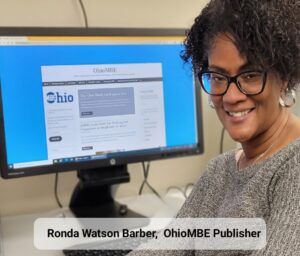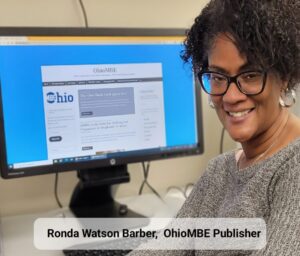
By Ronda Watson Barber
OhioMBE Publisher
In a move that has raised eyebrows and concern among advocates for Black-owned businesses, Columbus City Schools (CCS), under the leadership of Angela Chapman, is on the brink of making a decision that could significantly impact the future of supplier diversity within the district. The position of Outreach Coordinator, crucial for fostering supplier diversity and previously held by the esteemed Terri Wise, is up for grabs. Wise’s departure leaves big shoes to fill, given her extensive resume and commitment to supplier diversity—a commitment that has been the backbone of efforts to ensure equitable opportunities for Black-owned businesses within the district.
However, the direction in which CCS is heading raises questions about its commitment to these values. The district is reportedly considering candidates for the Outreach Coordinator position who lack any supplier diversity experience. This decision is perplexing and concerning, especially considering the critical role that supplier diversity plays in leveling the playing field for minority-owned businesses. It begs the question: Why is CCS considering candidates with no background in an area so vital to the economic development and access of Black-owned businesses?
The importance of this role cannot be overstated. Supplier diversity within CCS has long been a topic of discussion, with the district setting a purchasing goal to meet a 20 percent inclusion policy—a goal it has consistently failed to achieve. Last school year the district spent 14% of purchases with LEDE vendors. The disparity in contract allocations is stark and telling; last school year, under the LEDE program, white-owned companies were awarded $18.3 million in contracts, while Black-owned firms received a mere $8.9 million. This imbalance is not just a number; it reflects a systemic issue within the district’s approach to supplier diversity, where white men are the primary beneficiaries of a program designed to support disadvantaged businesses in a predominantly Black school district.
The decision to potentially place the future of supplier diversity in the hands of someone inexperienced is not just disappointing; it is a step backward in the fight for equity and access. The economic development of Black-owned businesses and the community at large is too important to be left to chance or to individuals who lack the necessary background and understanding of the complexities involved in supplier diversity.
As CCS moves forward with its decision-making process, it is crucial for the district to reconsider the implications of its choices. The Outreach Coordinator position is not one to be taken lightly or filled by just anyone. It requires a candidate with a proven track record, a deep understanding of supplier diversity, and a commitment to equity and inclusion. Anything less continues to undermine the efforts of Black-owned businesses to compete fairly and successfully, keeping CCS on the OhioMBE Wall of Shame.
The conversation around supplier diversity at CCS is a reflection of a larger issue that extends beyond the district. It is a call to action for all institutions to prioritize equity, access, and opportunity for Black-owned businesses. The path forward requires more than just setting goals; it demands a commitment to achieving them through informed, intentional, and inclusive decision-making. As a community, we must hold our institutions accountable and ensure that the economic development of Black-owned businesses is supported and championed at every level.
just my thoughts…rwb
Discover more from OhioMBE
Subscribe to get the latest posts sent to your email.
